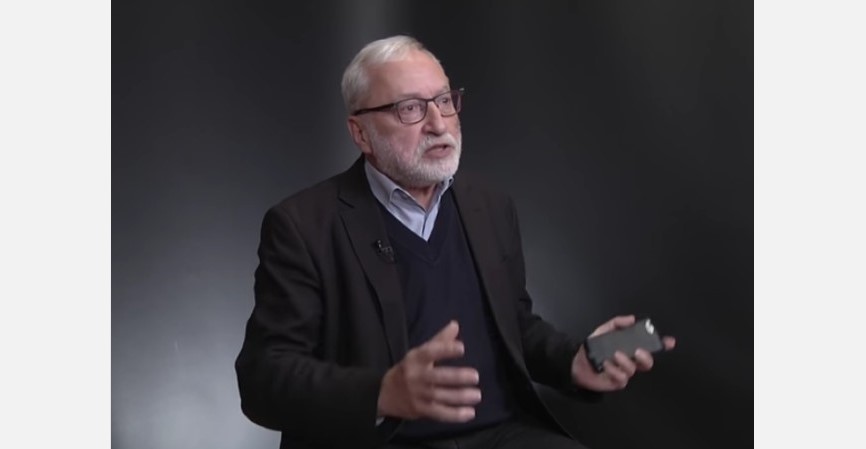There are two competing projects for a memorial at Babyn Yar [also known as Babi Yar], the site of a mass murder of Jews and others during the Nazi occupation. One of these projects, the Russian, is heavily funded by Kremlin allies and seeks to use the memorial to blame Ukrainian anti-Semitism for this crime against humanity.
The other, less well-funded and lacking even the enthusiastic backing of the current Ukrainian president Volodymyr Zelenskyy, is being developed by a group of Ukrainians, Jewish and otherwise. Its purpose is not some information war with Russia but rather a respectful memorial to the victims of this tragedy.
Yosyf Zissels, a former Soviet political prisoner and co-chairman of the Vaad (Union of Jewish Communities in Ukraine), is the leader of the latter. In an interview to Galia Ackerman, he discusses his objections to the Russian project (Josef Zissels : “Putin is sending us a Trojan horse” , Josef Zissels : « Poutine nous envoie un Cheval de Troie » and Бабий Яр: оккупация памяти).
Ukraine doesn’t want anything to do with the notion of a Soviet people, the former dissident says. It wants its memorial to reflect the history of Ukraine and its peoples as one of occupation and the history of anti-Semitism in Ukraine as part and parcel of this larger historical problem.
The Russian project for Babyn Yar ignores the Soviet period entirely and without an understanding of what happened in the 1920s and 1930s in Ukraine, one cannot understand Babyn Yar. The Ukrainian project seeks to understand the roots of the problem rather than use the single event for PR, Zissels continues.
But the Russian narrative ignores all this and thus offers “no explanation why local residents in some cases cooperated with the occupiers … and even took part in repressions against the local population, including Jews.” And because it does not do that, it creates a completely false impression.
That impression is that “the Holocaust spread not from Germany but from Babyn Yar,” an impression that serves Putin’s goal to denigrate the Ukrainians and label them “a nation of anti-Semites.” The Kremlin leader further wants to suggest that Ukrainians have done nothing about that tragic event, completely ignoring the 35 different memorials that Ukrainians have erected.
“In the Ukrainian conception,” Zissels says, “there are three main elements.” First, there is a memorial park of 70 hectares on which nothing is to be built. Then, there are two other objects, a Museum of the Victims of Babyn Yar and a Ukrainian Museum of the Holocaust. “That in brief is the Ukrainian conception.”
Read More:
- Putin’s “Trojan horse” in Ukraine — Babyn Yar and Holocaust memorialization
- “Your heroes are our nightmare”: Israeli Ambassador on Ukraine relations and Holodomor recognition
- Memory wars and other battles
- Intellectual group warns against Russian annexation of Ukrainian historical memory in “Holocaust Disneyland”
- “Holocaust Disneyland” on mass graves in Kyiv – result of weak national memory policy
- Revision of History: How Russian historical propaganda justifies occupation of entire south-eastern Ukraine
- Russian oligarchs push Babi Yar Holocaust Memorial project which discredits Ukraine – Zissels

